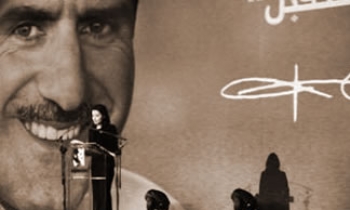The staff strike at Libération, one of France's leading dailies, may have ended, but with a steadily eroding circulation base and fast decreasing revenues stormier days lie in store for the newspaper.

The staff voted Friday to end the four-day strike which kept the newspaper off stands for most of this week and brought to light the deepest internal crisis the daily has faced in its 32-year history. The strike cost an estimated �120,000 ($140,000) per day.
The decision was adopted by 218 employees with just five votes against and 13 abstentions. They also agreed to insert a four-page supplement in Saturday's edition of the paper to explain to readers the cause and consequences of their strike which started Monday.
The employees had gone on strike to protest plans by the newspaper's management to shed 38 newsroom and administrative jobs and to outsource another 14. There was no indication that the staff had won any reprieve from those cuts. The paper has forecast a loss of 6.5 million euros ($7.7 million) on turnover of 73 million euros this year, Agence France Presse (AFP) reported.
Founded in 1973 by Jean-Paul Sartre and others – including current editor, Serge July – Libération went on to become the fountainhead of the free-thinking left. Although the radical and irreverent paper's future has rarely been secure, its design and layout are still much appreciated in the newspaper industry worldwide: Libération revolutionised the use of typography and photographs. In subject matter, too, it broke new ground.
However, the fragmentation of France's political left and the inroads made by television, the Internet and the advent of free newspapers in Paris have all eaten away at circulation and advertising revenues, both of which have fallen around 10 per cent in the past year. Libération currently sells around 134,000 copies a day, down 40 per cent from 10 years ago.
According to EditorsWeblog, Libération is not the first French newspaper to exhibit financial difficulty and to eliminate jobs. Le Monde laid off 90 employees earlier this year, Le Figaro has seen a drop in sales as well as voluntary staff departures, and L'Humanité is virtually bankrupt.

Earlier this year, the paper was forced to accept a �20m cash injection for "development projects" from an unlikely partner, Edouard de Rothschild, scion of a banking family not known for its leftist sympathies. The investment gave Rothschild a majority 38.9 per cent stake, although the staff who own 18 per cent retain a right of veto.
For the more radical left, the Guardian wrote, Libération has sold out. For the more moderate, modernising centre-left, it is self-contented, elitist, sometimes arrogant, too often irrelevant. The personality of July, the revolutionary turned talk show guest who this year penned a much-criticised editorial condemning the mainly leftwing French voters (and Libération readers) who rejected the EU constitution as "xenophobic" and "populist", crystallises many objections.
"There was a time," Jean-Marc Peres, a disillusioned former reader was quoted in the Guardian, "when Libération asked the right questions, the important questions, when it really pushed. Now it's just bitter, snide, as lost in the desert as the rest of the French left it pretends to understand. It still has some great writers. But I don't often enjoy reading them any more." As a blogger on the left-leaning Nouvel Observateur's website put it, the only way he can exploit it is to "replace everyone there with new faces. That would really be worthy of May 1968."









